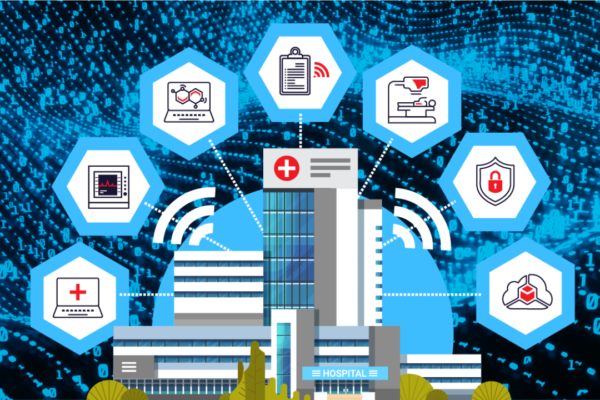The Future of Healthcare: The Rise of Smart Hospitals

In recent years, the healthcare industry has been undergoing a transformation fueled by technological advancements, and one of the most significant developments is the concept of smart hospitals. Smart hospitals leverage cutting-edge technologies to enhance patient care, improve operational efficiency, and streamline healthcare delivery. These innovative healthcare facilities are paving the way for a more connected, data-driven, and patient-centric approach to healthcare.
At the heart of a smart hospital are interconnected systems and devices that communicate and share data in real-time. This network of connected devices, often referred to as the Internet of Medical Things (IoMT), includes wearable devices, medical equipment, electronic health records (EHR), and other healthcare IT systems. By collecting and analyzing data from these sources, smart hospitals can provide healthcare providers with valuable insights to make informed decisions and deliver personalized care to patients.
One of the key benefits of smart hospitals is the improvement in patient outcomes and experiences. Through the use of wearable devices and remote monitoring technologies, healthcare providers can track patients’ vital signs, medication adherence, and overall health status outside of the hospital setting. This real-time data allows for early detection of health issues, timely interventions, and personalized treatment plans, ultimately leading to better patient outcomes and reduced hospital readmissions.
Smart hospitals also focus on enhancing operational efficiency and resource management. By implementing automation and artificial intelligence (AI) technologies, tasks such as patient scheduling, inventory management, and staff allocation can be optimized to reduce wait times, improve workflow efficiency, and minimize errors. Additionally, predictive analytics can help hospitals forecast patient demand, allocate resources effectively, and optimize treatment pathways to enhance overall operational performance.
Furthermore, smart hospitals prioritize patient safety and infection control through the use of advanced technologies. For instance, robotic process automation (RPA) can be utilized for sterilization and disinfection procedures, reducing the risk of healthcare-associated infections. AI-powered algorithms can also analyze patterns in patient data to identify potential risks and provide early warnings to healthcare providers, enabling proactive measures to prevent adverse events.
In addition to improving patient care and operational efficiency, smart hospitals are also driving innovation in medical research and education. By leveraging big data analytics and machine learning algorithms, healthcare providers can conduct research studies, clinical trials, and population health analyses to advance medical knowledge and improve treatment outcomes. Moreover, smart hospitals serve as training grounds for healthcare professionals to learn and adapt to the latest technologies and best practices in patient care.
As the healthcare landscape continues to evolve, smart hospitals are poised to play a pivotal role in shaping the future of healthcare delivery. By harnessing the power of technology, data, and connectivity, these innovative healthcare facilities are redefining the way healthcare is delivered, experienced, and managed. As we embrace the era of smart hospitals, it is essential to prioritize patient privacy, data security, and ethical considerations to ensure that the benefits of technology are harnessed responsibly for the betterment of healthcare worldwide.
Recent Posts
- Traditional Servers vs. Hyperconverged Infrastructure: Navigating the Evolution of Data Center Architecture
- The Future of Healthcare: The Rise of Smart Hospitals
- Unlocking the Benefits of IT Managed Services: Partnering for Seamless Business Operations
- Access Control Systems: Protecting Your Business with Enhanced Security
- PABX: Streamlining Communication for Modern Businesses
Recent Comments
Search
Recent Comments
Recent Posts
- Traditional Servers vs. Hyperconverged Infrastructure: Navigating the Evolution of Data Center Architecture June 4, 2024
- The Future of Healthcare: The Rise of Smart Hospitals June 3, 2024
- Unlocking the Benefits of IT Managed Services: Partnering for Seamless Business Operations November 12, 2023
- Access Control Systems: Protecting Your Business with Enhanced Security November 12, 2023
Archives
- June 2024 (2)
- November 2023 (8)
- October 2023 (4)
- October 2022 (2)
Unlocking the Power of Technology: Your ICT Solution Partner













+63 917 627 9111
sales@prokora.com
Unit M01 DMG Center
52 Domingo Guevarra St.,
Mandaluyong 1550
All rights reserved . PROKORA NETWORK SOLUTIONS INC.
